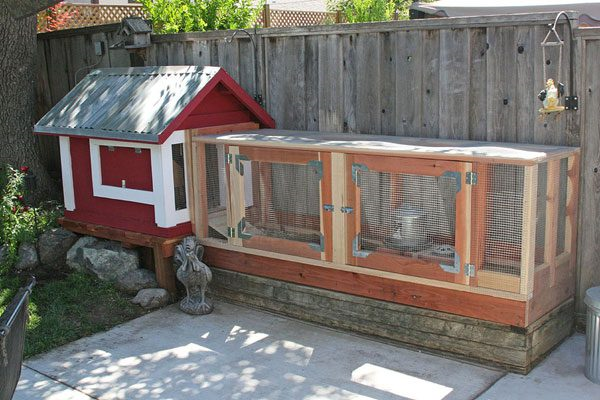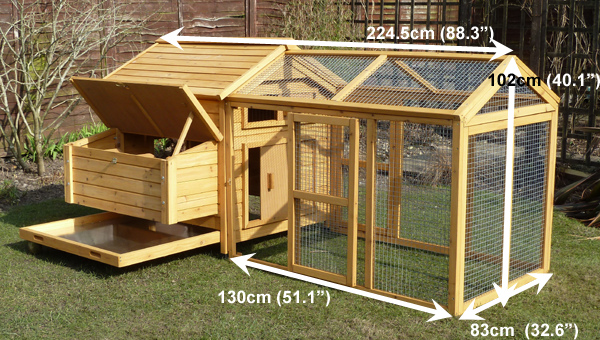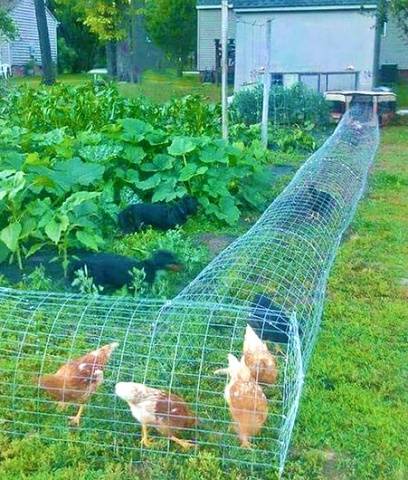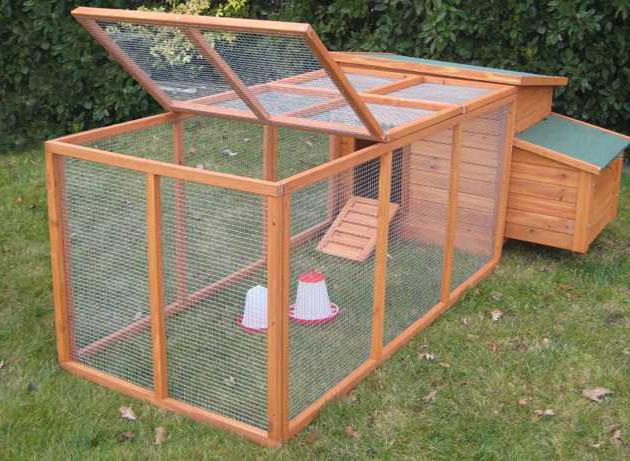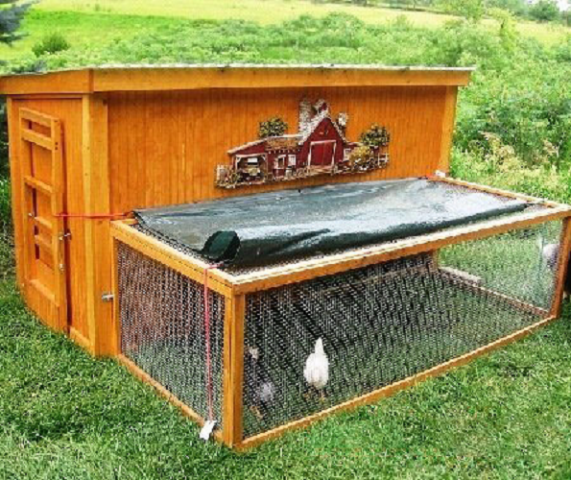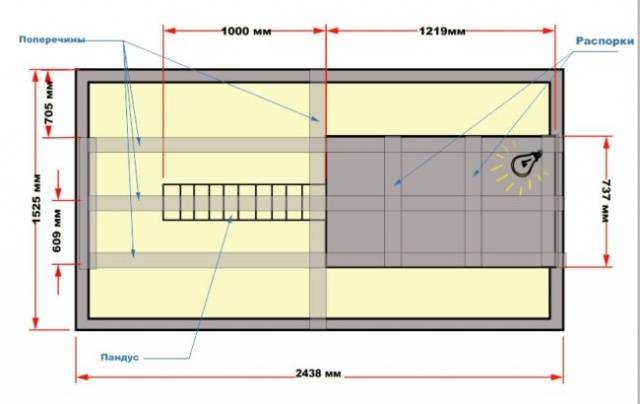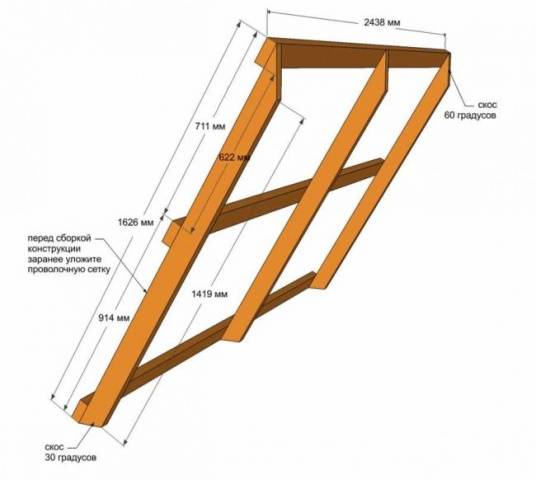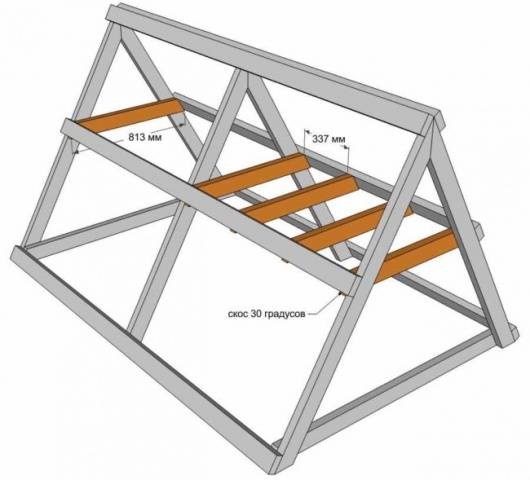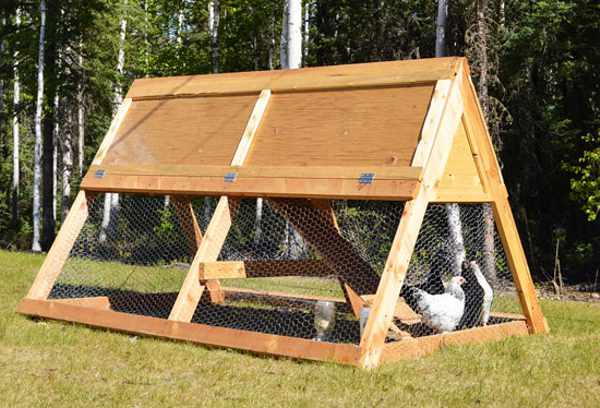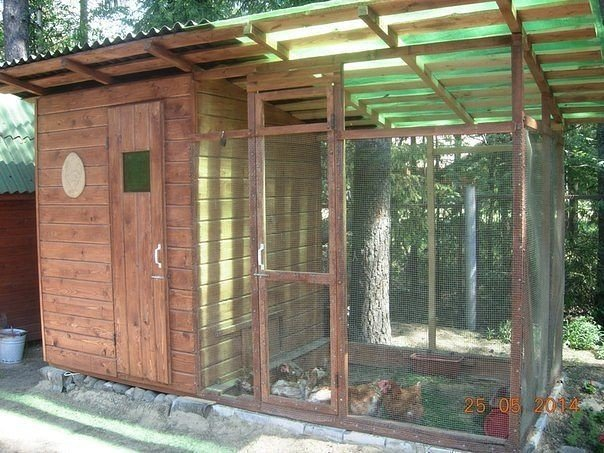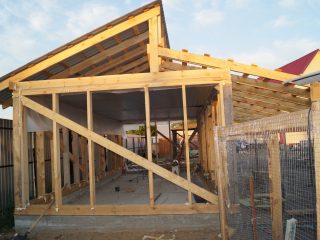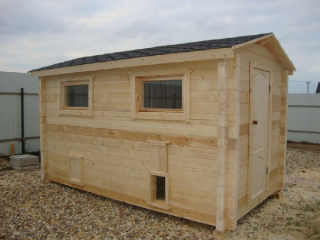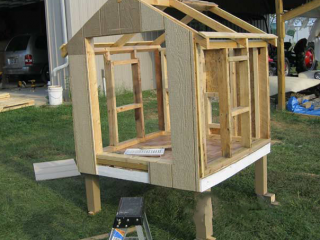Content
It so happened that at the dacha it is not a dog - a friend of man, but ordinary domestic chickens. The main life cycle of domestic chickens coincides with the period of active work in the country. There is enough space and food at the summer cottage, it remains to build a small summer chicken coop with your own hands in order to save and increase the chicken tribe until autumn.
How to organize a chicken country life
Rarely does any of the summer residents decide on the seasonal maintenance of a chicken tribe without building a chicken coop. Even if you enclose a part of the site with a chain-link for the summer period, and use a barn room as a chicken coop, it will be very difficult to save livestock. In addition to dietary meat and traditional eggs, chickens produce a sufficient amount of chicken droppings. Therefore, in order not to collect both products throughout the site, it is easier to make the simplest chicken coop in the country do it yourself.
Regardless of where and how to build a house for keeping chickens, a summer chicken coop must meet several basic requirements:
- The structure must be strong and rigid so that the weather or a small predator could not cause the slightest harm to the bird. Chickens, like any domestic animals, easily succumb to panic and fears, therefore, even in the summer version of the chicken coop, there should be a solid room where you can hide;
- Any building for chickens should be planned like a chicken coop with a walk. The ability to nibble on grass, dig in the ground and bask in the sun is vital to good bird health;
- The summer version of the building for chickens should be easily cleaned, disinfected with lime and timely freed from droppings.
You should not cover the summer version of the chicken coop with metal or corrugated board. The expectation that the scorching rays of the sun can disinfect the building is extremely wrong. Most of the pathogenic microorganisms will not die, and the building that is red-hot after a hot day is clearly not like the chickens. Even a summer chicken coop should be disinfected and cleaned at least once a week.
Most often, the size of the summer chicken coop is calculated according to the norm: four chickens per square of the area of the house. The area of the paddock for walking should be at least four times larger. A chicken coop for 5 chickens will take no more than 10 m2, taking into account 1.5 m2 for a perch, the same amount for a canopy with a vestibule, and the remaining 6-7 m2 go for a walk, fenced with a net.
But in practice, most summer residents are racking their brains in search of a solution to how to make the size of the enclosure for summer walking in the chicken coop as large as possible without prejudice to the country beds. The goal is simple - chickens, by their very nature, should actively move and be able to graze on the growing grass.
There are even projects of summer corrals made in the form of tunnels from a netting, rolled in half an arc, photo. The owners rearrange the tunnels from time to time throughout the site. For all its unusualness, with such a walking pattern, chickens have the opportunity to master the vegetation rich in vitamins and pasture without prejudice to the beds.
If the egg and meat are not for sale, it is better to refuse premixes and ready-made mixtures in favor of ordinary wheat, corn and what is available in the beds.
Materials for building a summer chicken coop
The summer version of the chicken coop is traditionally built from a board and a slab. Forget about any OSB, chipboard, fiberboard, plastic and even more sip panels. Firstly, assembling a summer cottage building from an edged board will be much cheaper, and secondly, the materials should not contain any resins and polymers that chickens can easily peck from the surface of the walls.
The second condition is the ability to treat the inner surface of the walls of the summer chicken coop building with lime and sanitary liquids. The wood will absorb the solution by 1.5-2 mm, metal or OSB will not absorb anything at all, and lime will not even stick to the plastic.
The best roof covering for building a summer chicken coop is bituminous shingles. It does not rot, does not rattle under raindrops, and at the same time has sufficient strength to protect against marten or hawk.
In addition to the board, a chain-link mesh is widely used to build a summer chicken coop. A corral is made of a mesh, and the floor and basement parts of the summer building are reinforced to protect against rats and weasels.
Any external, that is, wooden parts of the building that are not immersed in the ground, are impregnated with antiseptics and whitewashed with a lime solution. Varnishes and paints on any basis for the summer chicken coop are not welcome.
Many summer residents, when solving the problem of how to make the construction of a chicken coop more durable, use fatty varieties of ordinary clay. A layer of material, 1-2 cm thick, can be whitened or painted with a water-based emulsion. Plastering or plastering a building with a mixture of greasy clay with horse manure and rye straw filler allows you to solve three problems at once:
- The mixture provides excellent preservation of the wooden frame of the building, even without the use of toxic chemicals;
- Good sound and heat insulation will provide a cool atmosphere inside the building in the heat and comfortable conditions even with light frosts on the ground;
- The cost of such a finish will cost a penny, and with strict adherence to the technology, the plaster will stand for at least ten years, and it becomes stronger every year under the open sun.
For a summer chicken coop, you can use a cosmetic version of plaster with a thickness of 5-6 mm. To exclude cracking of the protective layer, use a paint net. This coating allows for normal protection of the wood.
A similar mixture can be used for arranging an adobe floor if the summer building will be located directly on the ground. To make an adobe base, you will need to remove the top layer of earth to a depth of 15 cm.Further, a layer of a thin layer of sand and gravel is poured onto the bottom, a protective mesh is laid, and the upper part is covered with fatty clay soaked in water 4-5 cm thick.After absorption part of the moisture with sand, the layer is compacted with a wooden rammer. After each cleaning of droppings, the floor surface is wiped with liquid clay with lime, which has natural antiseptic properties.
The most interesting designs of summer chicken coops
Before starting the search for a drawing of a summer building that is suitable in design, first of all, it is necessary to determine the basic parameters - the size of the chicken coop and the number of chickens.
If you plan to build broiler chicken coop do it yourself, then it is worth remembering that such a building is somewhat different from a room for ordinary chickens. Chicken coop can be done with high jumps and parapets, roost poles are placed in increments of 45-50 cm to 1 m, nests can be built at a height of 70-90 cm.For broilers, the height of the poles is reduced to 30-40 cm, nests and feeders are installed directly on the floor or on a small podium.The reason is quite simple - broilers with a large mass have relatively weak bones, so falling off the perch pole often leads to serious injuries.
Summer chicken coop design for several chickens
The simplest version of a summer chicken coop can be built in one day, having at your disposal 12-14 m of wooden slats, 5 meters of running metal mesh and 7 m2 plywood. The design of a summer building for chickens is shown in the drawing.
The general device can be read in the figure below. The summer building is made in the form of a symmetrical gable structure, the upper part of which is sewn with plywood and set aside for a house. A floor is sewn at a height of 70 cm, which also serves as a ceiling for the lower compartment.
The dimensions of the base of the summer chicken coop 153x244 cm provide normal walking and habitat for 5-6 chickens. The frame of the building is made of a wooden lath or timber, a ventilation hole and a hatch are cut out in the upper part of the summer chicken coop, allowing you to open the house and take out the laid eggs, carry out cleaning, add food and water to the feeder and drinker.
The section of the summer building is an isosceles triangle. Each of the slopes is made according to the above drawing. Initially, longitudinal lag strips are cut, the ends are cut at an angle of 60about and 30about respectively. On the logs, transverse boards are sewn onto which plywood will be stuffed and a protective mesh will be stretched. After assembly, using the drawing of the outer frame, a floor is filled inside from segments and remnants of an edged board, on which it is advisable to lay a steel sheet so that the droppings remain inside the building, and not wake up when cleaning on the heads of chickens.
After assembly, wooden slats can be treated with an antiseptic, thoroughly rinse the surface with water. The inner surfaces of the building must be treated with lime.
The floor on the lower level is not provided for by the design, which, in fact, fits into the idea of using a summer chicken coop. Every two or three days, the building is moved to a new place with clean grass, thereby eliminating the need to clean the poultry pen.
Such a scheme of a summer chicken coop is perfect for the first samples of bird breeding, since a house for 5 chickens for a summer residence is still not enough to provide for an ordinary family of three or four people. As you gain practical experience in caring for chickens, you can choose a more practical full-size summer chicken coop.
Country version of a summer chicken coop for 10 laying hens
The above design of the summer chicken coop is carried out on a light foundation of stone and brick, laid on a sand-covered area. The chicken house is built according to the classic frame scheme from a bar and a 20 mm edged board. Such a chicken coop can no longer be moved around the site, therefore, the place for a summer building must be determined once, preferably under a tree.
The highlight of the project is the canopy over the summer enclosure for walking chickens. Cellular polycarbonate is used as the roofing material, and the canopy supports are used as posts for the protective mesh.
The floor in the summer enclosure is sandy with the addition of pebbles and ash. Periodically, the sandy base has to be removed and replaced with a new layer. The low location of the entrance hatch allows you to use the chicken coop for breeding almost any breed of chickens, and the spacious summer house can accommodate 10 - 20 broilers or 30 laying hens.
Conclusion
The most rational for breeding chickens in a summer cottage can be considered stationary summer chicken coops, built of boards and beams. Without insulation, the premises are able to winter normally without loss of structural qualities. At the beginning of the season, it is enough to sanitize insects and mice, and a batch of young animals can be populated into the chicken coop.
